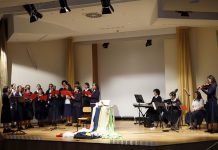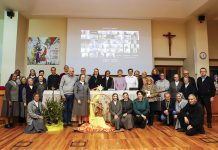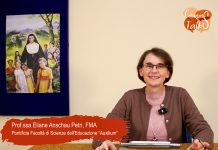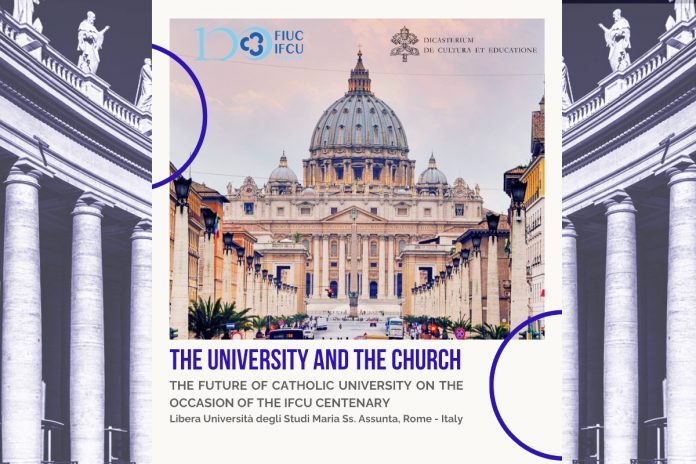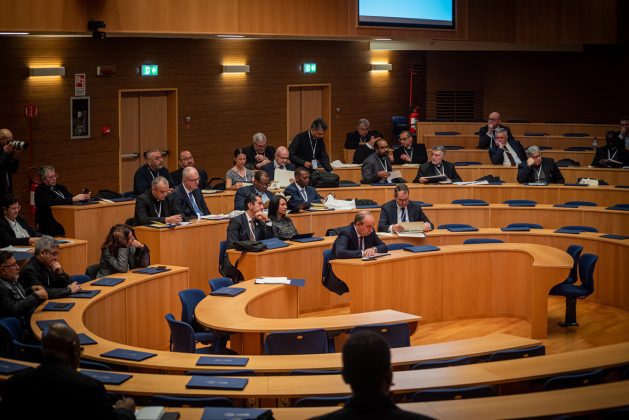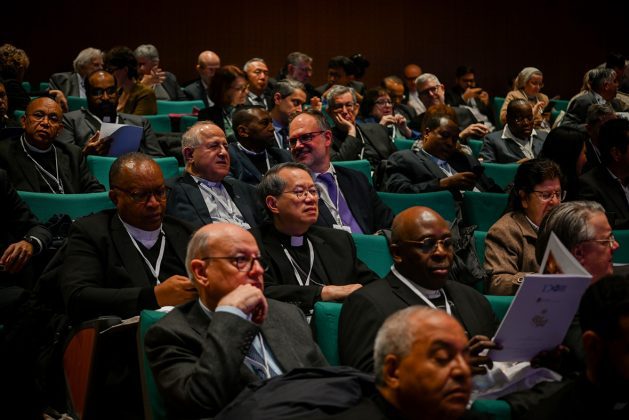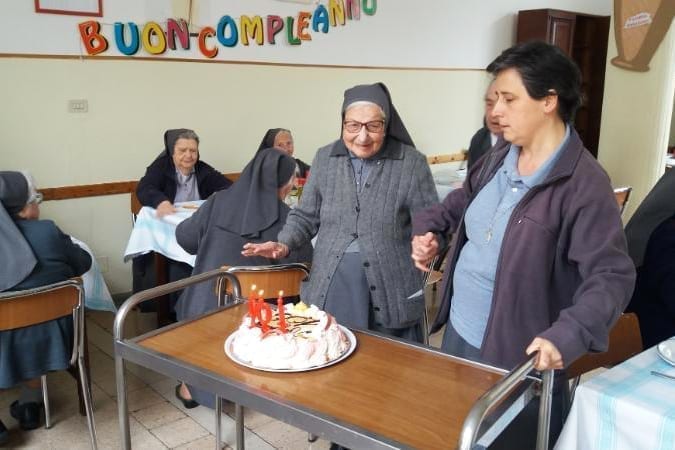Rome (Italy). On 18-19 January in Rome, the Free University of Mary Most Holy. of the Assumption (LUMSA) hosted the event, “The Future of the Catholic University”, promoted by the International Federation of Catholic Universities (FIUC), on the occasion of its centenary.
The theme, a real challenge for the Universities, gathered more than 150 Rectors and Chancellors of Catholic Universities from all over the world belonging to the FIUC, to address globally the issues of governance with which the institutions are confronted. The meeting also constituted a moment of international reflection in view of the 25th anniversary of the Apostolic Constitution Ex Corde Ecclesiae on Catholic Universities and offered participants the opportunity to share perspectives on the future of institutions, making visible the unity of Catholic universities, born in the heart of the Church.
Also present at the event were the Institutions of Higher Studies (ISS-FMA) of the Institute of the Daughters of Mary Help of Christians, represented by Sister Ivone Goulart Lopes, collaborator of the Sector.
During the two days, the group examined the challenges that Catholic universities face in the different contexts in which they operate and were able to deepen various themes in response to some common questions:
What are the contributions of Catholic universities and institutions to the formation of contemporary culture? How can we foster a rapprochement with modern cultures that promotes the development of individuals and peoples? How can the Christian message help us to better understand, and even enlighten, contemporary cultures? How can we act together and as Church for a more just and human world?
At the opening, the initial greetings were delivered by the President of FIUC Dr. Isabel Capelo Gil and Prof. Francesco Bonini, Rector of LUMSA. Then there was the round table: “Ex Corde Ecclesiae in the face of the challenges of the 21st Century” with speakers from the United States, France, Ukraine.
Cardinal José Tolentino de Mendonça, Prefect of the Dicastery for Culture and Education of the Holy See, then spoke on the theme: “Catholic Universities, a place of dialogue between the Church and the Society”, followed by the intervention of Sister Helen Alford, OP, President of the Pontifical Academy of Social Sciences of the Holy See, on: “Extract from our closets new and ancient treasures (Mt 13, 52): the Catholic tradition as a source of innovation in research”.
The first day ended with a second round table – “The FIUC, a legacy of academic diplomacy and social commitment” – led by speakers from Italy, the United States, Brazil, France, and Costa Rica, and with the Eucharistic Celebration presided over by Msgr. Vincenzo Zani, Archivist and Librarian of the Holy Roman Church and former Secretary of the Dicastery for Culture and Education, in the Church of San Luigi dei Francesi.
On 19 January, the participants had a private audience with Pope Francis in the Consistory Hall of the Apostolic Palace, where the Holy Father quoted a tale told by Franz Kafka to stigmatize “the temptation to close ourselves behind walls, in a safe social bubble, avoiding risks or cultural challenges, turning away from the complexity of reality”.
He continued, “Do not allow that a Catholic University be limited to replicate the typical walls of the societies in which we live: those of inequality, dehumanization, intolerance and indifference, of many models that aim to strengthen individualism and do not invest in fraternity. A university that protects itself within the walls of fear can reach a prestigious level, recognized and appreciated, occupying the first places in the rankings of academic production.” And the Pope’s cry of alarm, “as the thinker Miguel de Unamuno said, ‘knowledge for knowledge; this is inhuman’. We must always ask ourselves: What is the use of our science? What transformative potential does the knowledge we produce have? What and who are we at the service of?”.
In other words, for Pope Francis, “Neutrality is an illusion. A Catholic university must make choices, choices that reflect the Gospel. It must take a stand and demonstrate it with actions, in a clear way; ‘dirty the hands evangelically in the transformation of the world and in the service of the human person”.
The group then reached the Congregation of the General Curia of the Society of Jesus, at the Catholic University of the Sacred Heart, where the round table was held: “History, heritage, and perspectives: the role of a network of Catholic universities in the development of research,” with speakers from Italy, Portugal, Japan, Belgium, Chile, who sought to answer the questions:
How to redefine the collective idea of the founders for the next hundred years of the Federation? What role does a network of Catholic universities play in research development, considering the centrality and continuity of the international perspective?
In the afternoon, two workshops were held: “Models of government in Catholic universities: chancellors, rectors/headteachers, and administrative councils” with participants from Australia, Chile, Spain, and Lebanon. Followed by, “The role of Catholic intellectual tradition in the contemporary university” with the participation of Macao, China, Austria, India, Lebanon, Croatia. The last round table, “The Future of Catholic Universities”, was moderated by the Secretary General of FIUC; the speakers were from Japan, Kenya, Argentina, Brazil.
The international event concluded with the Eucharistic Celebration presided over by Cardinal José Tolentino de Mendonça, a concert in the Church of Sant’Antonio dei Portoghesi, and a dinner at the Portuguese Embassy to the Holy See.
“Through teaching and research, the Catholic University makes an indispensable contribution to the Church. Indeed, it prepares men and women who, inspired by Christian principles and helped to live their Christian vocation in a mature and responsible way, will also be able to assume positions of responsibility in the Church. Moreover, thanks to the results of scientific research made available by it, the Catholic University will be able to help the Church in responding to the problems and needs of the time” (Ex Corde Ecclesiae, 31).



